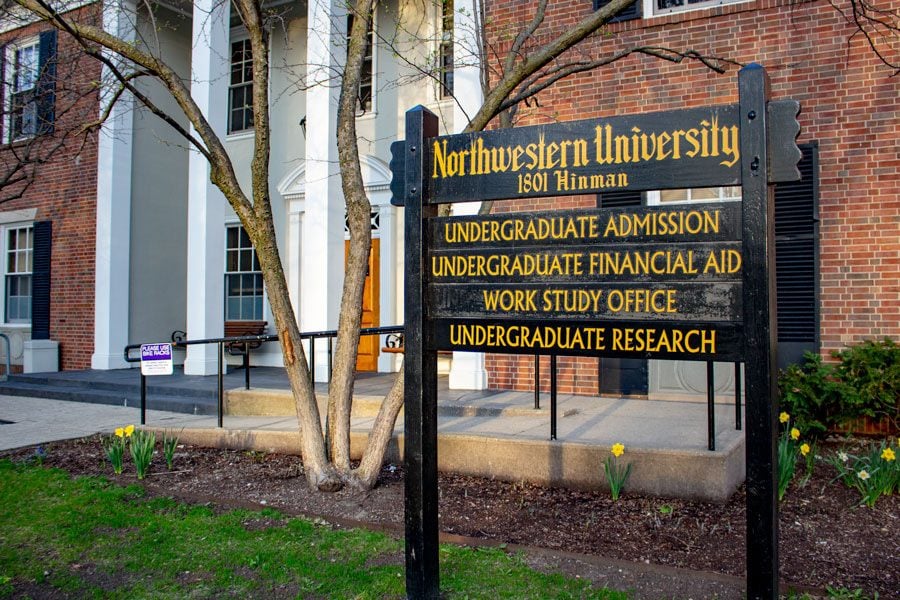Financial aid now available for four years rather than 12 quarters
Daily file photo by Evan Robinson-Johnson
The Office of Financial Aid, 1801 Hinman Ave. Starting with the 2019-2020 academic year, students will be eligible for four years of financial aid, rather than 12 quarters.
May 13, 2019
The Office of Financial Aid has restructured its renewability policy so that financial aid is now available to incoming freshmen for four years rather than 12 quarters, Phil Asbury, the University’s director of financial aid, told The Daily in an email.
The change, which will be implemented in the 2019-2020 academic year, was made to allow students more flexibility, particularly in pursuing summer study, Asbury added.
Previously, a student taking classes during Summer Quarter would either have to graduate a quarter early or find a way to pay for school without financial aid for that additional thirteenth quarter. With financial aid now being measured by years rather than quarters, students can enroll in summer courses without considering “long term loss of financial aid eligibility,” Asbury said in an email.
“Our goal in financial aid is to see that students have ample flexibility and stay on course through to graduation,” Asbury said in the email. “The prior policy that focused on quarters was too constraining. My hope is that students will take advantage of this flexibility and better stretch their enrollment across a larger volume of quarters, when helpful. Hopefully and ideally, this change will relieve some of the stress that might accompany enrollment in only the fall/winter/spring quarters.”
Anor Chen, a Weinberg freshman and Quest+ secretary, said the change will be beneficial for him. Chen is planning to do Engage Chicago, which involves taking classes on campus, so he needs financial aid to afford summer tuition, room and board.
The twelve-quarter renewability policy had forced Chen to debate whether he could do the program. He had to consider whether or not to “sacrifice” a quarter of aid, which would involve planning his graduation date years in advance and restricting his ability to experiment with classes, as he would have to limit himself in order to graduate early.
Chen said hearing about the change took that pressure away.
“It’s just really great,” Chen said. “It’s given me more liberty to actually do what I want and not necessarily be like, ‘Oh man, I can’t do summer classes because then I’ll just ruin my track for myself that I planned.’”
Idrees Kamal, a McCormick junior who transferred in as a sophomore, said receiving three years of aid rather than nine quarters, which transfers were allocated, also gives him the flexibility to take summer courses, which he is planning to do.
Without the new policy, Kamal would be in a tight spot financially.
“That policy change would be really beneficial for applying aid for that summer quarter,” Kamal said. “Otherwise, I might have had to pay out of pocket for that.”
However, Kamal said he did not receive any communication about the change — both he and Chen heard offhand. Chen said he could have taken the policy into consideration when dealing with the dilemma of whether or not to do Engage Chicago had he known about it.
On the Office of Financial Aid’s website, it’s difficult to find evidence of the change. The “Aid Basics and Eligibility” page and its subpages still say students are eligible for up to 12 quarters of financial aid. Only on the “Summer Aid” subpage, which is located within the “Current Students” subpage of the “Apply for Aid” header, is four-year eligibility displayed.
Chen said he would have liked to know about it earlier, and from an official source.
“I have no idea this is even a thing that was happening,” Chen said. “I have no clue. It’s a great thing, but I just wish I actually knew about it so that I could take that into consideration.”
Email: [email protected]
Twitter: @birenbomb


